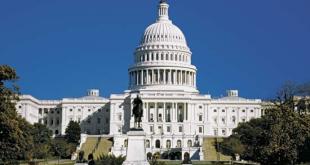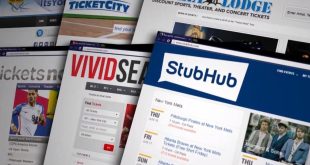Oral arguments in the Deflategate appeal take place on Thursday, March 3, 2016. Here’s a quick primer to get you caught up on where the case stands, what’s new with the appeal, and what to expect from oral arguments.
Background
Back in September, Judge Berman vacated Roger Goodell’s punishment of Tom Brady for his alleged involvement in a ball deflation scheme in the 2015 AFC Championship Game. The decision was a resounding victory for Brady and the NFLPA, with Berman ruling for the Patriots quarterback on every issue discussed in the decision. Berman found “significant legal deficiencies” with Goodell’s disciplinary process, specifically that Brady did not receive proper notice of his punishment and that the process by which Goodell reached his decision was fundamentally unfair because Brady did not have access to a key witness or to the Wells Report investigative notes. The NFL quickly appealed the decision to the Second Circuit Court of Appeals. I have previously written in more detail about the arguments on appeal, including one surprising new argument the league raised in its last brief.[1]
The Judges
The latest news on the case is the announcement of the Second Circuit panel of judges who will decide the case: Denny Chin, Robert Katzmann, and Barrington Parker, Jr.[2] The panel appears to be a favorable one for Brady, with a panel of judges nominated to the appellate bench by Presidents Obama, Clinton, and Bush, respectively.[3] Though Democratic nominees tend to be more favorable to labor unions and Republican nominees to management, party affiliation (or even past judicial history) is no guarantee of how judges will decide. Though the judges were just announced last week, they have been assigned to the case for a while and are familiar with the arguments at issue. They and their clerks have no doubt been reading both sides’ briefs, Berman’s decision, and the record of the district court case.
The Attorneys
Attorney Paul Clement will represent the NFL at oral arguments and will have fifteen minutes to persuade two of the three judges that Berman failed to provide sufficient deference to Goodell’s authority as arbitrator. The judges can interrupt Clement at any time to ask any questions they may have about the case or his arguments, though Clement will doubtless be well-prepared. Clement is a former Solicitor General and has argued more cases before the Supreme Court than any other attorney in recent years.
Attorney Jeffrey Kessler will represent the NFLPA at oral arguments and will also have fifteen minutes for arguments and questions from the judges. Kessler successfully argued the case before Berman at the district court level and is one of the top sports litigators in the country. Kessler will argue that Goodell’s disciplinary process was unfair and warranted vacating the punishment. The judges can always extend the oral argument times, though thirty combined minutes is above average for argument time at the Second Circuit.
Conclusion
While the arguments will be brief, the time the judges take to decide the case will not be. I would not expect a decision for months as the three judges will have to decide how they are voting and write their opinion(s), in addition to hearing and deciding the many other cases before them. In the meantime, the NFL and NFLPA will continue to discuss potential changes to the NFL disciplinary process, while a case which will have an enormous impact on those discussions hangs in the balance.
[1] For full coverage of Tom Brady’s legal case from the beginning, read my Deflategate Omnibus.
[2] Michael McCann wrote a good article discussing the judges and their backgrounds.
[3] Though President George W. Bush appointed Judge Parker to the Second Circuit, President Bill Clinton previously appointed him as a district court judge.
 The Sports Esquires Putting Sports on Trial
The Sports Esquires Putting Sports on Trial





One comment
Pingback: New England Patriots Links 3/03/16 - LaFell, Chandler, Tyms Trimmed From Roster; Deflategate, Day 410 - The Scoopp